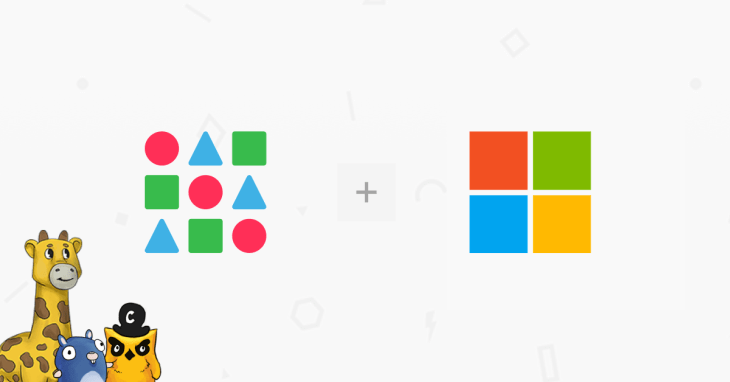Microsoft today announced that it has acquired Deis, the company behind some of the most popular tools for building and managing applications on top of the Google-incubated Kubernetes container orchestration service. The companies did not disclose the price of the acquisition.
It’s worth noting that Engine Yard acquired Deis back in 2015, so while Microsoft doesn’t mention this in today’s announcement, it is acquiring Deis directly from Engine Yard.
While Microsoft’s Azure Container Service is agnostic and supports all the major container orchestration frameworks, like Mesos and Docker Swarm, Kubernetes is quickly becoming the de facto standard and with this move, Microsoft is also increasing its investment in it. Containers, after all, are quickly changing the way companies build and deploy their applications, and Microsoft obviously has every intention to stay on top of this trend.
 “At Microsoft, we’ve seen explosive growth in both interest and deployment of containerized workloads on Azure, and we’re committed to ensuring Azure is the best place to run them,” Microsoft’s executive VP for its cloud and enterprise group Scott Guthrie writes today. “To support this vision, we’re pleased to announce that Microsoft has signed an agreement to acquire Deis — a company that has been at the center of the container transformation.”
“At Microsoft, we’ve seen explosive growth in both interest and deployment of containerized workloads on Azure, and we’re committed to ensuring Azure is the best place to run them,” Microsoft’s executive VP for its cloud and enterprise group Scott Guthrie writes today. “To support this vision, we’re pleased to announce that Microsoft has signed an agreement to acquire Deis — a company that has been at the center of the container transformation.”
The acquisition is clearly about the tech, but given how hard it is to find and hire the right talent for building Kubernetes-centric services (there simply aren’t enough developers on the market), this move also brings into Microsoft a lot of new talent with deep knowledge of Kubernetes.
Deis provides three core open-source tools for managing Kubernetes deployments: Workflow, a platform for developers and operations teams to easily deploy and manage containerized apps; the Kubernetes package manager Helm; and Steward, a Kubernetes-native service broker (which basically allows applications to talk to each other). Like similar companies, its business model relies on providing paid support and training for these applications.
The team will continue to work on these open-source tools, which are currently in use by the likes of Mozilla, CloudMine and SocialRadar. Indeed, Microsoft’s Guthrie notes that “the Deis team brings a depth of open source technology experience — furthering Microsoft’s commitments to improve developer productivity and to provide choice and flexibility for our customers everywhere.”
